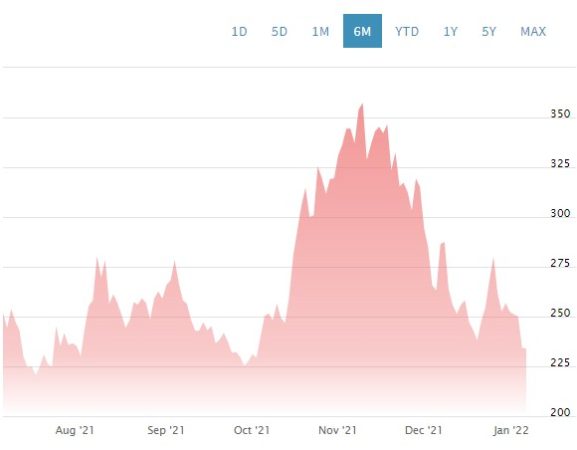Prosecutor turned crypto venture capitalist Katie Haun is looking to raise nearly $900 million for a new venture firm.
Haun, who joined a16z as a partner for its crypto investing unit in 2018, left the firm at the end of last year, as reported by Axios at the time. Now, Haun’s new firm —dubbed KRH— is in the process of raising the money across different venture funds, according to sources familiar with the investment firm’s plans.
Haun has secured a16z as a limited partner for the new fund, according to sources. And the two firms are expected to have an informal relationship and collaborate together, a source said.
The Financial Times first reported details of the firm’s fundraising efforts.
As per the Financial Times, the two funds will include a $300 million fund that will make early-stage investments in cryptocurrency startups and another $600 million fund will focus on investments in larger companies and digital tokens.
Crowded market
Haun’s new fund joins an increasingly crowded market of venture capitalists seeking crypto riches. Paradigm and a16z are among the firms that last year announced multi-billion dollar venture funds. Elsewhere, traditional venture capitalists such as Sequoia and Point72 Ventures are keen to increase their presence in the crypto venture market.
Haun joined Andreessen Horowitz in 2018 as the firm’s first female general partner, where she co-chaired the firm’s three crypto funds and co-led a $2.2 billion fund focused on crypto. Haun currently sits on the board for OpenSea and Coinbase, according to her LinkedIn.
Earlier this week, Haun’s new fund made an investment in OpenSea’s $300 million Series C funding round. While at a16z, she previously led the NFT platform’s Series A and B rounds.
Haun will be joined by several other a16z colleagues, including Rachael Horwitz, who was a16z’s crypto head of marketing and communications, Nick Pacilio, the firm’s former head of crypto media relations, Tomicah Tillemann, a16z’s former global head of policy and partner focused on web3, and James Rathmell, who had been crypto counsel at the firm.
© 2021 The Block Crypto, Inc. All Rights Reserved. This article is provided for informational purposes only. It is not offered or intended to be used as legal, tax, investment, financial, or other advice.
Go to Source
Author: Anushree Dave and Frank Chaparro
